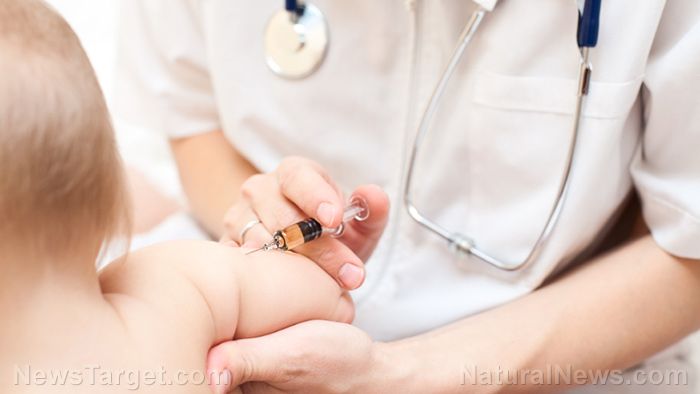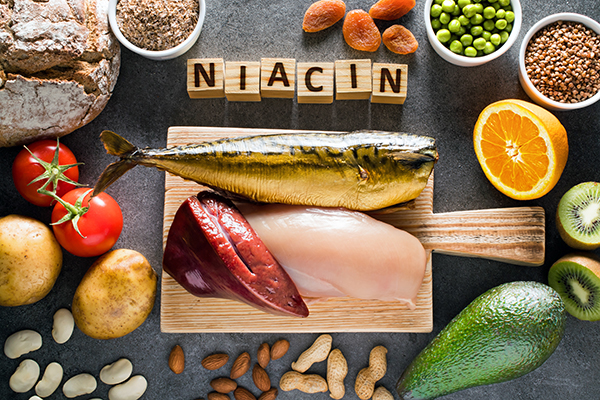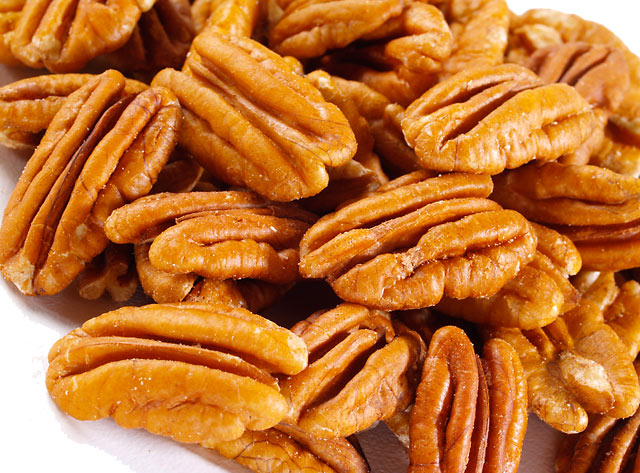© Brighteon.com All Rights Reserved. All content posted on this site is commentary or opinion and is protected under Free Speech. Brighteon is not responsible for comments and content uploaded by our users.
Thrive And Survive COVID-19 (Dr. David Hanscom, orthopedic surgeon)
172 followers
Follow
1
Share
Report
40 views • 12/06/2021
https://articles.mercola.com/sites/articles/archive/2021/12/05/hanscom-covid-19-prevention.aspx?ui=db1c8443091da8e5adafcb987fb464e0897952a7a94345dffa47df648a2295a5&;sd=20120913&cid_source=dnl&cid_medium=email&cid_content=art3HL&cid=20211205_HL2&mid=DM1058647&rid=1341797929
https://zbbb278hfll091.bitchute.com/ySITC1RcRsOS/ZGDu9grm9mmT.mp4
https://backincontrol.com/thrive-and-survive-covid-19-the-polyvagal-approach/
Anxiety is a physiological response to a threat that increases your inflammatory cytokine levels. If your body's inflamed, you're going to feel anxious
Cytokines are small proteins that serve to regulate different tissues. There are both proinflammatory and anti-inflammatory cytokines. Cytokines have specific relevance to COVID-19, as they modulate your immune system and its function
By reducing or resolving stress and anxiety, you lower levels of inflammatory cytokines, thereby allowing your immune system to function better
Processed foods cause inflammation, in part by increasing insulin resistance, which raises inflammatory cytokine production, and in part because they are loaded with proinflammatory industrially processed omega-6 vegetable seed oils
Strategies that will activate the vagus nerve, which induces relaxation and lowers inflammatory markers, include expressive writing, getting quality sleep, forgiveness practice, time-restricted eating and supplementing with exogenous ketones
This article was previously published November 8, 2020, and has been updated with new information.
Dr. David Hanscom, an orthopedic surgeon whom I’ve previously interviewed about strategies for chronic back pain, quit his practice to focus on educating others on becoming pain-free without surgery. After surviving COVID-19, he turned his attention to prevention and surviving it, which is an important part of this discussion.
We've known for some time now that with diet, exercise and other interventions, you can radically reduce your risk of COVID-19. The focus of Hanscom's COVID-19 prevention is on strengthening immune function through stress and anxiety reduction, and he has very specific and precise recommendations on how to do that.
As explained by Hanscom, pain is largely a symptom of stress and anxiety, which in turn are predicated on inflammation more so than psychological factors.
"You have to feel safe. When you feel safe, there's a profound shift in your body's chemistry. You're going from adrenalin, cortisol, histamines and inflammatory cytokines to growth hormone, dopamine, serotonin and GABA — all these incredible hormones and anti-inflammatory [compounds]. So, there's a profound shift in the body's chemistry, and people's pain disappears. They don't just manage the pain. The pain disappears."
Cytokines, Anxiety, Pain and Poor Immune Function
Cytokines are small proteins that serve to regulate different tissues. There are both proinflammatory and anti-inflammatory cytokines. Cytokines have specific relevance to COVID-19, as they modulate your immune system and its function.
Anxiety is a physiological response to a threat. Your whole body is on fire. You need to decrease anxiety, decrease cytokines, decrease that stress response. If your body's inflamed, you're going to feel anxious.
By reducing or resolving stress and anxiety, you lower levels of inflammatory cytokines, thereby allowing your immune system to function better. Hanscom has developed a working group that meets once a week to discuss and share information.
Other members of the group include Stephen Porges, Ph.D., a behavioral neuroscientist who developed Polyvagal 30, and Dr. David Clawson, a physiatrist who specializes in physical medicine and rehabilitation and who is very knowledgeable about cytokines.
"Cytokines are everywhere. Every cell in the body has cytokines. It's how they talk to each other. It turns out that the glial cells in your brain, that connect the tissue of the brain, put out cytokines. So do the endothelial cells, the linings of blood vessels.
When you have a threat — surgeons think in terms of muscle tension, sweating and heart rate — that to us is a threat response, versus safety where you relax and regenerate. What I didn't realize is that threat fires up the immune system, and 'threat' is all sorts of stuff. It's viruses, bacteria, cancer cells, a bully, a difficult boss, but also your thoughts, emotions and repressed emotions.
Neuroscience has shown us that those thoughts and emotions are processed in the brain the same way as a physical threat. It turns out that every degenerative disease is, what Clawson says, the same soup. In other words, we know that cardiac disease, critical vascular disease, adult onset diabetes, obesity, Parkinson's and Alzheimer's are just examples of inflammatory disorders. It's all inflammatory."
Also...
Anxiety Is a Symptom of Inflammation
Lowering Inflammation Improves COVID-19 Survival
The Vagus Nerve
How to Activate Relaxation Response and Lower Inflammation
https://zbbb278hfll091.bitchute.com/ySITC1RcRsOS/ZGDu9grm9mmT.mp4
https://backincontrol.com/thrive-and-survive-covid-19-the-polyvagal-approach/
Anxiety is a physiological response to a threat that increases your inflammatory cytokine levels. If your body's inflamed, you're going to feel anxious
Cytokines are small proteins that serve to regulate different tissues. There are both proinflammatory and anti-inflammatory cytokines. Cytokines have specific relevance to COVID-19, as they modulate your immune system and its function
By reducing or resolving stress and anxiety, you lower levels of inflammatory cytokines, thereby allowing your immune system to function better
Processed foods cause inflammation, in part by increasing insulin resistance, which raises inflammatory cytokine production, and in part because they are loaded with proinflammatory industrially processed omega-6 vegetable seed oils
Strategies that will activate the vagus nerve, which induces relaxation and lowers inflammatory markers, include expressive writing, getting quality sleep, forgiveness practice, time-restricted eating and supplementing with exogenous ketones
This article was previously published November 8, 2020, and has been updated with new information.
Dr. David Hanscom, an orthopedic surgeon whom I’ve previously interviewed about strategies for chronic back pain, quit his practice to focus on educating others on becoming pain-free without surgery. After surviving COVID-19, he turned his attention to prevention and surviving it, which is an important part of this discussion.
We've known for some time now that with diet, exercise and other interventions, you can radically reduce your risk of COVID-19. The focus of Hanscom's COVID-19 prevention is on strengthening immune function through stress and anxiety reduction, and he has very specific and precise recommendations on how to do that.
As explained by Hanscom, pain is largely a symptom of stress and anxiety, which in turn are predicated on inflammation more so than psychological factors.
"You have to feel safe. When you feel safe, there's a profound shift in your body's chemistry. You're going from adrenalin, cortisol, histamines and inflammatory cytokines to growth hormone, dopamine, serotonin and GABA — all these incredible hormones and anti-inflammatory [compounds]. So, there's a profound shift in the body's chemistry, and people's pain disappears. They don't just manage the pain. The pain disappears."
Cytokines, Anxiety, Pain and Poor Immune Function
Cytokines are small proteins that serve to regulate different tissues. There are both proinflammatory and anti-inflammatory cytokines. Cytokines have specific relevance to COVID-19, as they modulate your immune system and its function.
Anxiety is a physiological response to a threat. Your whole body is on fire. You need to decrease anxiety, decrease cytokines, decrease that stress response. If your body's inflamed, you're going to feel anxious.
By reducing or resolving stress and anxiety, you lower levels of inflammatory cytokines, thereby allowing your immune system to function better. Hanscom has developed a working group that meets once a week to discuss and share information.
Other members of the group include Stephen Porges, Ph.D., a behavioral neuroscientist who developed Polyvagal 30, and Dr. David Clawson, a physiatrist who specializes in physical medicine and rehabilitation and who is very knowledgeable about cytokines.
"Cytokines are everywhere. Every cell in the body has cytokines. It's how they talk to each other. It turns out that the glial cells in your brain, that connect the tissue of the brain, put out cytokines. So do the endothelial cells, the linings of blood vessels.
When you have a threat — surgeons think in terms of muscle tension, sweating and heart rate — that to us is a threat response, versus safety where you relax and regenerate. What I didn't realize is that threat fires up the immune system, and 'threat' is all sorts of stuff. It's viruses, bacteria, cancer cells, a bully, a difficult boss, but also your thoughts, emotions and repressed emotions.
Neuroscience has shown us that those thoughts and emotions are processed in the brain the same way as a physical threat. It turns out that every degenerative disease is, what Clawson says, the same soup. In other words, we know that cardiac disease, critical vascular disease, adult onset diabetes, obesity, Parkinson's and Alzheimer's are just examples of inflammatory disorders. It's all inflammatory."
Also...
Anxiety Is a Symptom of Inflammation
Lowering Inflammation Improves COVID-19 Survival
The Vagus Nerve
How to Activate Relaxation Response and Lower Inflammation
Keywords
FREE email alerts of the most important BANNED videos in the world
Get FREE email alerts of the most important BANNED videos in the world that are usually blacklisted by YouTube, Facebook, Google, Twitter and Vimeo. Watch documentaries the techno-fascists don't want you to know even exist. Join the free Brighteon email newsletter. Unsubscribe at any time. 100% privacy protected.
Your privacy is protected. Subscription confirmation required.





